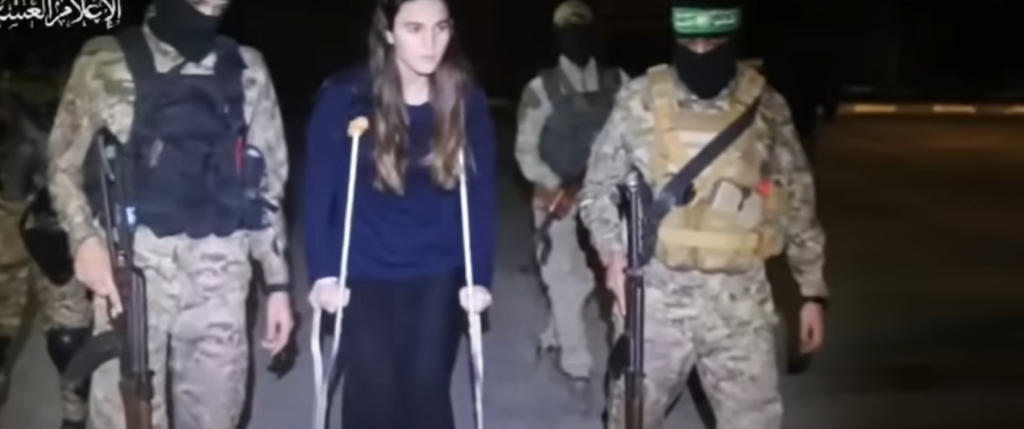Israel’s main leverage against Hamas lies in increasing military pressure, aiming to force the organization to lower its demands.
The Israeli government is cautious, having learned from past cease-fire agreements where abductees were released in exchange for security prisoners, resulting in only temporary calm.
Israel now insists that any future negotiations for a prisoner exchange deal will take place under military pressure, denying Hamas an image of victory.
Despite the political echelon’s strong desire for the return of Israeli abductees, the lessons learned have reshaped their approach.
Hamas, aware of Israeli sensitivity on this issue, exploits the pressure exerted by the families of the abductees to extract concessions from the Israeli government.\
As Hamas recognizes its diminishing military power and the approaching end of its rule in Gaza, it views the continued possession of hostages as crucial to the survival of its military leadership.
Hamas military leadership surrounds itself with a belt of “quality abductees,” among the 135 in its hands, anticipating that Israel will be compelled to make significant concessions for their release.
Sources close to Hamas suggest that the release of these abductees is contingent on Israel agreeing to ensure the survival of Hamas’s military leadership through international guarantees and a designated “safe passage” for them to leave Gaza.
For Hamas’s military leadership, led by figures such as Yahya Sinwar, the physical survival of their leadership after Israeli military attacks is paramount.
They seek to present this survival as a victory over the Israeli war machine to the Palestinian public while pledging to continue their struggle against Israel from a new location.
As the IDF approaches its goals in the conflict, Hamas may deny its vulnerability.
Still, if it perceives a genuine threat to its leadership, it could call for a two-stage prisoner exchange deal.
The first stage would involve a partial, interim deal, exchanging security prisoners for a brief cease-fire.
The second stage would require Israel to agree to the survival of the military leadership in exchange for the release of all abductees.
Hamas’s uncompromising stance, as articulated by the military wing’s spokesman “Abu Obeidah,” signals a tough negotiation ahead.
The military leadership is likely to demand not only its survival but also a complete cessation of fighting, an IDF withdrawal to the international border, and the release of numerous security prisoners, including murderers.
The complexity of these negotiations involves mediators from Qatar, Egypt, and the USA and is expected to be a protracted process.
Hamas also aims to secure a role in the management of Gaza post-conflict, demonstrating that Israel failed to achieve its goal of toppling Hamas rule.
Despite Israel’s willingness to renew negotiations for a new prisoner exchange deal, its firm stance on the release of Israeli women, children, and those not returned in previous deals remains unchanged.
The challenge for Israel lies in finding ways to apply additional pressure on the Hamas leadership in Gaza to move forward in the negotiation process and achieve a resolution to the current crisis.




